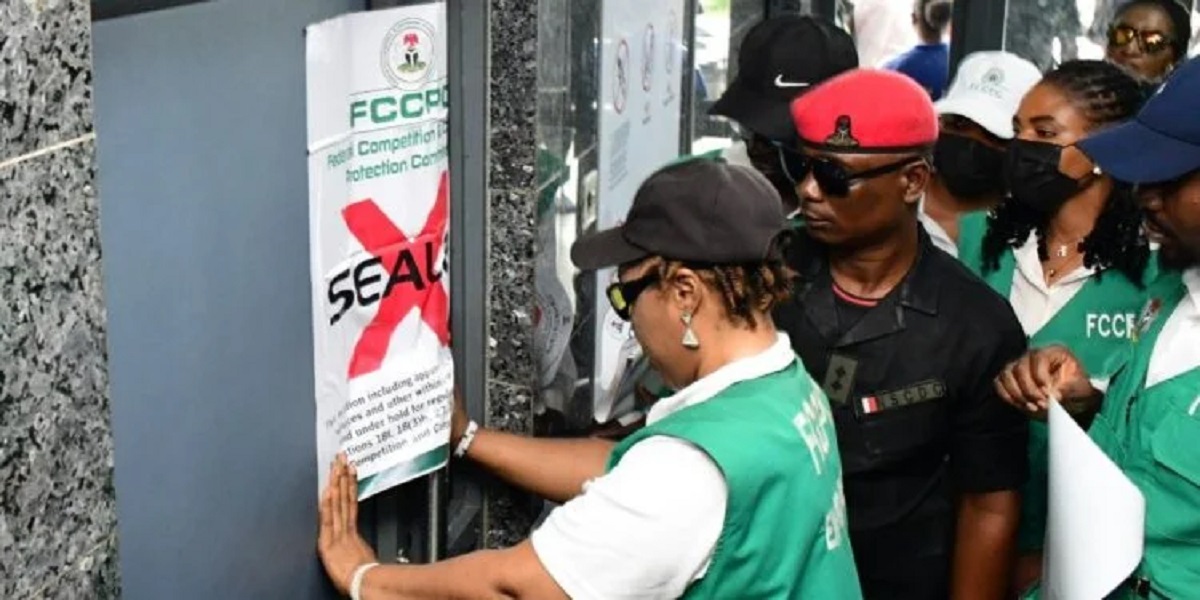News
P&G’s Giles Deacon Unveils Machine-Washable Fabrics

Giles Deacon, P&G’s Global Fashion Consultant, exclusively unveiled his latest machine-washable collections at P&G Future Fabrics.
According to Deacon, “After a year of working with P&G Fabric Care I have seen their advances in fabric care. I’ve spent time with the talented team at the innovation centre in Brussels and the progress in their work there. I’ve been inspired by what Ariel and Downy can do to ensure that clothes remain beautiful long after they were designed.
“For this new collection I was inspired by the macro-trend of multi-sensorial fashions and fabrics. Aware that both Ariel and Downy have the capability to preserve and protect these fashions I set about creating designs that bring the best of each brand to life. For Ariel it was all about making first impressions last, colour, confidence and impact. For Downy I focussed on giving people the confidence to wear an item all day and feel as great in it in the evening as they did when they first put it on in the morning.”
P&G Future Fabrics brings together the world’s leading fashion and fabric experts in a feast for the senses
P&G Fabric Care exclusively revealed how it is evolving to meet multi-sensorial fashion trends and solve the challenge of maintaining clothing beauty and longevity for consumers.
Hosted in vibrant Berlin, this year’s P&G Future Fabrics – for its Fabric Care brands Ariel and Downy brought together a prestigious mix of fashion, fabrics and human psychology experts to address the latest advances in fabrics and how our own unconscious decisions affect our clothing perceptions.
Advancing P&G’s unique 3-Step Fibre SCIENCE approach to prolong and improve the sensorial properties of clothes
John Turner, P&G’s research & development director, in a keynote speech focused on why people’s preferences and perceptions toward their clothes change.
Turner revealed that P&G Fibre Scientists are introducing new advances in the 3-Step FibreSCIENCE approach; to Clean, Protect and Enhance, which focus on prolonging and improving the multi-sensorial fabric properties that influence people’s perception of their clothes: the look, the feel and the scent. The life cycle of our clothes is often cut short because these properties are not cared for properly.
Turner said, “Our closets are full of clothes,yet we only wear 20% of them 80% of the time, so why aren’t we wearing the rest? Why have we fallen out of love with a garment that we spent our hard earned money on? P&G is looking at Fabric Care from a new angle to find out the answer. We’re breaking new ground by applying latest research in the cognitive science of human perception to understand WHY we reject a garment and how our relationship with clothes changes over time. By applying this knowledge to our FibreSCIENCE expertise we are redefining what Fabric Care means for consumers and their clothes.”
Cognitive Science Meets Fashion And Fabrics
P&G Future Fabrics official partner and respected fabric trends forecaster, Première Vision, opened with a presentation given by Associate Fashion Director, Sabine Le Chatelier on fashion as a multi-sensorial experience, which illustrated how fabrics are more than visual – an alchemy of look, feel and handle or behaviour.
Also revealed was the current industry trends in textile and fabric innovation where imagination and technology are combining to produce exciting sensorial fashions that are also washable, easy to care for and sustainable.
This fashion trend towards the multi-sensorial was further explored by a presentation from leading cognitive psychologist Dr Lawrence Rosenblum, who disclosed that the last years of research in perceptual psychology has given rise to a “multi-sensory revolution”, showing that our senses are always influencing one another, and impacting our preferences and moods much more than we realize and often in ways in which we are not aware.
Rosenblum’s collaboration with P&G demonstrates how the myriad of cross-sensory influences on our experiences with our fashions – what you see, how it feels to touch, what your nose smells – impact the relationship we have with clothes and our final decision on what to wear.
Advanced Ariel works deep down at a fibre level to clean, protect, and enhance the sensorial qualities of your clothes (their look, feel and scent) and offering outstanding stain removal in ONE WASH.
It redefines what it means to care for fashion with unique FibreSCIENCE technologies that allow you to achieve the highest standard of clean to keep your fashions beautiful for longer.
Robert van Pappelendam, Vice President of P&G Fabric Care Europe, commented:
“Last year we announced that P&G’s mission is to redefine and elevate what cleaning and caring for clothes means and this year, in collaboration with our incredible partners, we’re taking that mission to another level – to explore how human psychology and cognitive behavioural analysis is helping to fuel product innovation.
“At P&G Fabric Care we constantly strive to meet people’s ever-evolving needs. From scientific research to clothes design we are increasingly aware of the benefits we can gain from greater understanding of cognitive behaviour. It’s extremely exciting to be able innovate and enhance our products at such a human level and we believe this is the key to successful product today.”
News
DBN Awards N13m in Grants to Tech Startups

Development Bank of Nigeria (DBN) has awarded a total of N13 million in grants to three standout tech startups at the 2025 Techpreneur Summit held in Lagos, reinforcing its commitment to innovation and inclusive growth among Nigeria’s micro, small, and medium enterprises (MSMEs).

The winners include: BuyScrap, a digital marketplace for recyclable materials – N6 million; Qiqi Farms, which connects local farmers to hospitality and export markets – N4 million; Eco-Cyclers, a youth-led recycling initiative based in Enugu – N3 million
Alongside the grant awards, DBN also launched a new digital data asset, a first-of-its-kind platform aimed at enabling data-driven decisions within the MSME ecosystem.
The platform offers deep insights into business trends, sector-specific challenges, and growth opportunities—supporting smarter policymaking and targeted investments.
In his keynote address in Lagos, Tony Okpanachi, managing director/ CEO, DBN, described the event’s theme, “CTRL + SHIFT: Tech Empowered Movement for Naija,” as a strategic call to reimagine enterprise development in Nigeria.
“This isn’t just a keyboard shortcut,” he said. “It’s a mindset reset—powered by technology—to build a more inclusive, innovative, and resilient business landscape. From financing to innovation, DBN remains committed to enabling MSMEs to thrive.”
Okpanachi emphasized that the Summit aligns with DBN’s AMPLIFI Strategy, which integrates digital transformation, sustainability, and scalability into its core programs.
He highlighted initiatives such as the Digital Shift Workshops and the Eco-Innovation Challenge as key steps toward embedding innovation in Nigeria’s MSME sector.
Encouraging young innovators, he added: “The future belongs to those bold enough to imagine and build it. DBN is proud to support the ideas that will shape tomorrow.”
A major highlight was the unveiling of the DBN Data Asset—a digital platform designed to provide real-time, evidence-based insights into Nigeria’s MSME landscape.
The platform combines DBN’s proprietary data with external sources like the National Bureau of Statistics (NBS) to offer a comprehensive view of MSME performance by region and sector.
Jeremy Dan Okayi, DBN’s Head of Strategy, Policy & Innovation, described the platform as: “A reservoir of insight, potential, and direction—built on two years of collaboration and shared vision. This tool will support informed decision-making across the public and private sectors.”
News
FCCPC Shuts France, Belgium, and Italy Visa Centres in Abuja Over Alleged Consumer Rights Violations

In a bold enforcement action, the Federal Competition and Consumer Protection Commission (FCCPC), supported by the Nigeria Police Force and the Nigeria Security and Civil Defence Corps (NSCDC), has sealed off the visa application centres of France, Belgium, and Italy in Abuja over alleged consumer protection breaches and obstruction of regulatory investigations.

The affected centres—located at Mukhtar El-Yakub House in the Central Business District and operated by TLS Contact, a Teleperformance Company—were shut down following reports that they refused to accept formal correspondence from the FCCPC regarding a consumer complaint. The Commission cited further infractions, including obstruction of investigation and alleged assault of its officers during lawful duties.
Speaking to journalists at the scene, Mrs. Boladale Adeyinka, Director of Surveillance and Investigations at the FCCPC, explained: “This is an enforcement operation against TLS. On March 25, 2025, we served them a letter to address a consumer complaint, which they refused to accept. Instead, TLS officers assaulted our team, and in a subsequent visit on June 17, they also allegedly assaulted uniformed police officers.”
Citing Section 33 of the Federal Competition and Consumer Protection Act (FCCPA), Mrs. Adeyinka emphasized that failure to comply with Commission directives constitutes a criminal offense, punishable by imprisonment, fines of up to ₦20 million, or both.
TLS has been ordered to appear before the Commission on June 20, 2025, to provide testimony, submit evidence, and make formal depositions. The company may be held liable for any financial losses suffered by applicants due to the disruption of visa services.
Despite multiple requests for comment, management at TLS Contact declined to respond as of press time.
News
How and Why N210 Trillion is Missing in NNPCL – CFO

Adedapo Segun, chief financial officer (CFO), Nigerian National Petroleum Company Limited (NNPC), has explained why there is a missing sum of N210 trillion in the company’s audited financial statement spanning from 2017 to 2023.

According to Segun, the missing funds are cash calls requested by joint venture (JV) partners and settlement to the JVs.
He spokeat a session of the Senate Committee on Public Accounts chaired by Aliyu Wadada.
Segun was responding to an alarm raised by the committee over missing N210 trillion in NNPCL’s audited financial statement.
Recall that Wadada issued a one-week ultimatum to NNPCL to account for the missing N210 trillion.
Reacting, Segun said, “The N103 trillion and N107 trillion are made up of joint venture cash calls that have been requested by the JV operators and JV cash call payments made by NNPCL, which are yet to be reconciled because governance procedures were not done at that time.
“That is why you see the description reflecting those two items would be washed out because they are two sides of the same transaction, which is the cash calls by JV partners and the settlement by NNPCL.”
However, Habu Sadeik, a financial analyst, in a post on X on Thursday, said Segun’s response was unsatisfactory.
Saidik faulted NNPCL’s response about the fund discrepancies, noting that something is not right with the audited financial statement.
“Forget about the senators’ lack of knowledge.
“The CFO’s response is not satisfactory. Are you saying that cash calls worth hundreds of trillions are just appearing on your FS only in 2024 without 31 disclosure?
“If it’s a cash call, why hasn’t the disclosure said so?
“Which cash call is over 100 trillion?
“Something is definitely not right, and I hope they retrospectively correct that FS.
“Someone somewhere did a chef’s work,” he wrote on X.

 Telecom1 day ago
Telecom1 day agoOver 1m Nigerians Reached through MTN Staff’s Digital and Community Outreach

 General News1 day ago
General News1 day agoNASRDA, Galaxy Space Firm Sign MoU on Satellite Connectivity

 Telecom1 day ago
Telecom1 day agoMafab Gets 0724 Number Series, Launches Mcom 5G Brand

 News1 day ago
News1 day agoDBN Awards N13m in Grants to Tech Startups

 News1 day ago
News1 day agoFCCPC Shuts France, Belgium, and Italy Visa Centres in Abuja Over Alleged Consumer Rights Violations

 News2 days ago
News2 days agoHow and Why N210 Trillion is Missing in NNPCL – CFO

 News2 days ago
News2 days agoPalmPay, Glo Launch “Recharge and Win Bonanza 2” with Exciting Prizes

 General News2 days ago
General News2 days agoIHS Nigeria, United Nations Global Compact Host High-Level Dialogue on Sustainability and Greener Business Practices in Nigeria

















